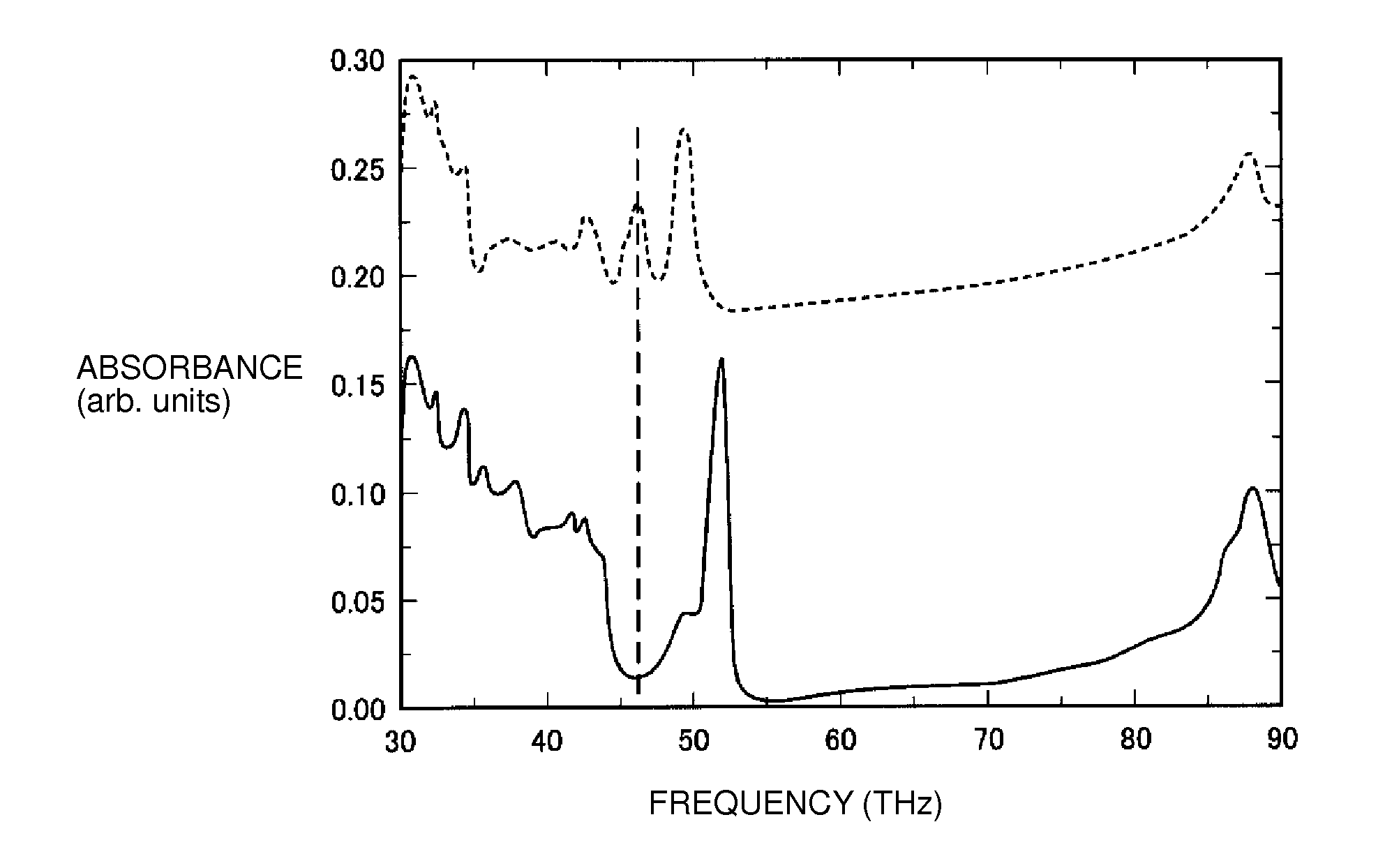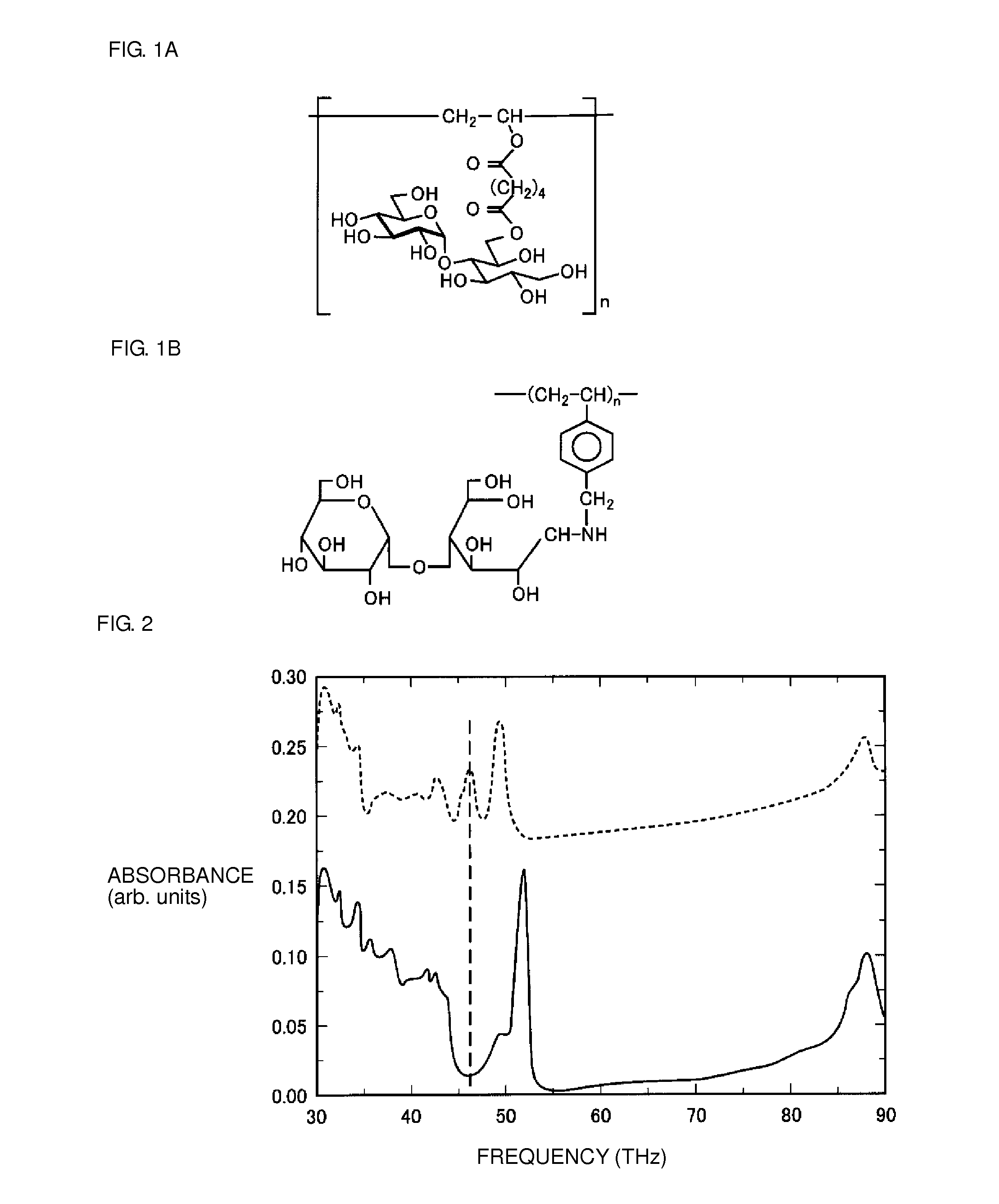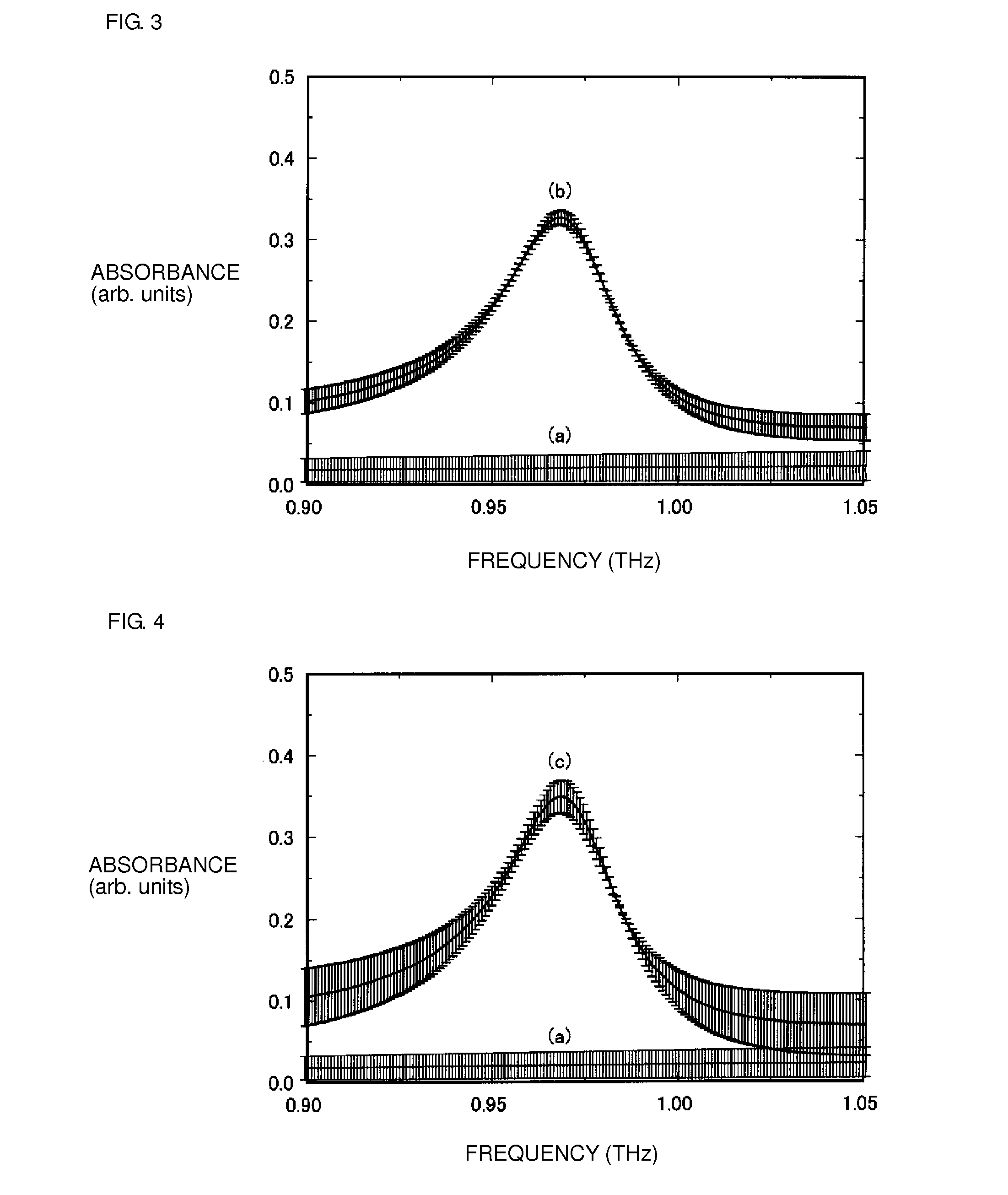Method of measuring characteristics of specimen and sensing device for use with the same
a technology of sensing device and specimen, which is applied in the direction of measurement device, scientific instruments, instruments, etc., can solve the problems of reducing the detection sensitivity of specimen, and achieve the effect of reducing measurement noise and increasing sensitivity and accuracy in specimen measuremen
- Summary
- Abstract
- Description
- Claims
- Application Information
AI Technical Summary
Benefits of technology
Problems solved by technology
Method used
Image
Examples
example 1
[0053]A sensing device was prepared by fixating, as a host molecule to which a specimen is to be specifically bonded, a compound expressed by a structural formula illustrated in FIG. 1A (in the formula, n is 5 to 15) and containing a sugar chain (but not containing an NH group) onto a glass substrate. The host molecule was fixated onto the glass substrate by first coating an aqueous solution of the host molecule over the glass substrate, and then air-drying the glass substrate at a room temperature.
[0054]For the sensing device thus prepared, an absorbance was measured and a frequency spectrum was obtained by using an FT-IR apparatus (made by Spectrum Co.).
example 2
[0057]An absorption spectrum of an electromagnetic wave was obtained by executing simulated calculation on each of the following three models:
[0058]model of a sensing device in which only a sugar chain not containing an NH group is fixated onto the substrate,
[0059]model of the case fixating a protein to the sensing device in which only a sugar chain not containing an NH group is fixated onto the substrate, and
[0060]model of the case fixating a protein to a sensing device in which only a sugar chain containing an NH group is fixated onto the substrate.
[0061]In more detail, an absorption spectrum of an electromagnetic wave with a frequency of 0.90 to 1.05 THz was obtained by executing simulated calculation on each of the following three cases:
[0062]sensing device in the form of plate-like member made of a substance having the complex dielectric constant of ∈r=2.4 and tan δ=0 (the substance being assumed as a sugar chain not containing an NH group) and having a thickness of 15 μm,
[0063...
example 3
[0067]A transmissivity spectrum was compared between a protein (ConA: concanavalin A) as a specimen having a large atomic number (having high molecular weight) and a sugar chain (galactose) as a host molecule having a small atomic number (having low molecular weight). The transmissivity spectrum was obtained by preparing pellet-like samples made of respectively ConA and galactose and having a thickness of 1 mm, and by measuring transmissivity for each of the samples with a THz-TDS (terahertz time domain spectroscopic apparatus). FIG. 6A illustrates the transmissivity spectrum of the ConA, and FIG. 6B illustrates the transmissivity spectrum of the galactose.
[0068]As plotted in FIGS. 6A and 6B, in the range of 1.5 to 2.0 THz, for example, a large difference appears in the transmissivity (absorbance) between the two samples. It is hence understood that noise in the measurement of the specimen can be reduced by setting the atomic number (molecular weight) of the specimen to be different...
PUM
| Property | Measurement | Unit |
|---|---|---|
| tan δ | aaaaa | aaaaa |
| tan δ | aaaaa | aaaaa |
| wavenumber | aaaaa | aaaaa |
Abstract
Description
Claims
Application Information
 Login to View More
Login to View More - R&D
- Intellectual Property
- Life Sciences
- Materials
- Tech Scout
- Unparalleled Data Quality
- Higher Quality Content
- 60% Fewer Hallucinations
Browse by: Latest US Patents, China's latest patents, Technical Efficacy Thesaurus, Application Domain, Technology Topic, Popular Technical Reports.
© 2025 PatSnap. All rights reserved.Legal|Privacy policy|Modern Slavery Act Transparency Statement|Sitemap|About US| Contact US: help@patsnap.com



